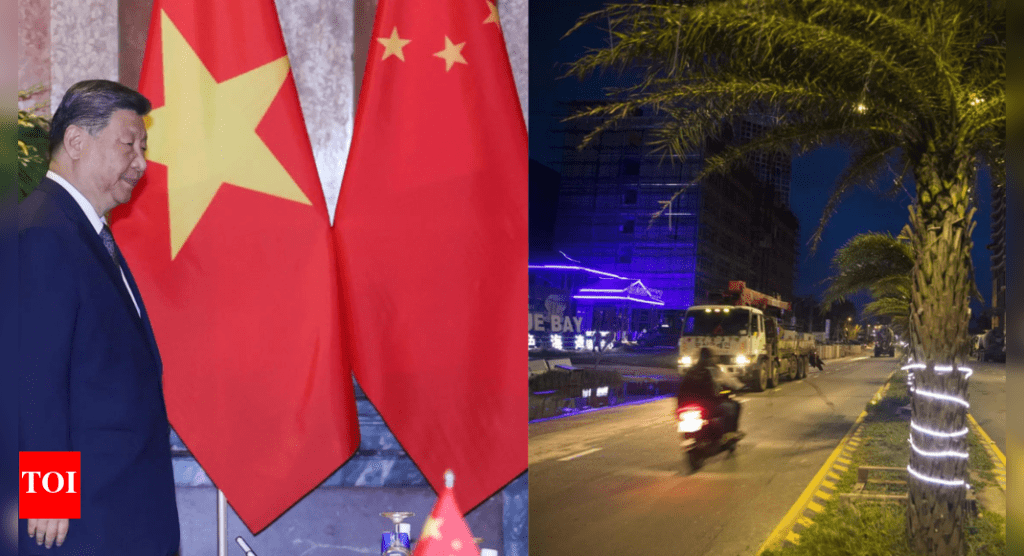Transformation of Sihanoukville through Chinese Investments
Previously a quiet fishing region, Sihanoukville in Cambodia has undergone considerable transformation due to extensive Chinese investments, morphing into a partially developed gambling resort now marked by Mandarin signage.
China’s Dominance in Investment and Trade
As Cambodia’s primary investor and trade partner, China has focused significant resources on this Gulf of Thailand port, which plays a crucial role in the Belt and Road Initiative (BRI) promoted by President Xi Jinping, who is visiting Cambodia this week.
Mixed Reactions to Chinese Investments
Although local officials embrace the influx of Chinese funds, critics express concerns regarding the unsustainable debt burdens being placed on Cambodia and the increasing reliance on Beijing.
Gambling Attractions and Growth
With gambling being illegal in mainland China, locations like Sihanoukville have emerged to attract Chinese tourists. Visitors like Xiaofan have noted the dramatic shift, stating, “This year I came back and it was entirely a Chinese city,” highlighting the city’s demographics shifting prominently towards Chinese nationals.
Infrastructure Developments and Economic Outlook
According to the Preah Sihanouk provincial administration, the region enjoys a GDP per capita of $4,000, which is about double the national average, largely supported by Chinese-operated manufacturing hubs. The Sihanoukville Special Economic Zone is touted by local officials as a testament to the strong Cambodia-China relationship.
Concerns about Economic Viability
Despite the optimistic view from some local authorities, the reality of Chinese investments, as analyzed by experts like Ou Virak, indicates the presence of many unneeded projects leading to potential “ghost cities” with excessive debt accumulation. The International Monetary Fund (IMF) reports that over a third of Cambodia’s $11 billion foreign debt is owed to China, raising alarms about economic sustainability.
Strategic Implications and Local Sentiments
The Ream naval base, recently renovated with Chinese funds, is viewed as a potential strategic asset for Beijing in the contested South China Sea. Academics warn that Cambodia’s economic dependence on China could threaten its sovereignty.
Nevertheless, local residents, like meat skewer vendor Wang Guohua, express optimism. Having moved to Sihanoukville from China five years prior, he remarked, “We certainly hope that the (Chinese-Cambodian) relationship will get even stronger,” indicating a desire for continued economic ties with China.



